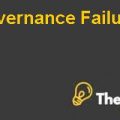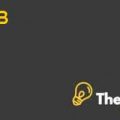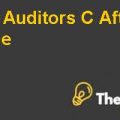INTRODUCTION
WorldCom was formed in 1983 and was a multi-billion dollar company in the telecommunications industry. When the company became bankrupt, at that time it was the second largest telecommunications company after AT&T. Bernard Ebbers, who was one of its nine investors, focused on the firm's internal growth by acquiring other small companies. The company expanded rapidly and by the 1990s, the telecommunications industry was expanding very rapidly. In 1996 WorldCom acquired MFS Communications Company. This company and its subsidiary gave WorldCom access to the international markets. By 2002, the company had about 60,000 employees. Its assets were $104 billion and had revenues of about $30 billion. In the year 2002, the fraudulent reporting activities were revealed for the first time. The income before tax of WorldCom in 2002 was overstated by $7billion and this was all done deliberately. After that the company had to make large write downs of its assets of about 75%, 17,000 employees were immediately jobless and its stock became worthless. Finally, it was on June 26, 2002, that a civil suit was filed again WorldCom for committing fraudulent reporting and criminal investigations began by the U.S Justice Department at WorldCom.
PROBLEMS AT WORLDCOM & OPPORTUNITIES
The problems that led the company to bankrupt were created by deliberate actions and deliberate decisions taken by the management of the company. There were a lot of problems prevailing in 2002 at WorldCom. There was a lack of communication between different departments. Each department had its own management style and its own rules. People even didn’t recognize the people from the other offices if they called. The accounting systems of the company were not integrated and also the billing systems. There were no written policies in the organization and a policy manual was never created. Also, when, Ebbers, one of its eight investors, was told to create a code of conduct for the company through a joint effort, he called it as simply a waste of time.
There was a system in the organization that employees cannot question their seniors. It was also entirely the choice of Ebbers and Sullivan, the director, to grant the compensation to any of the employees and that too above the approved salary. On the other hand the Human Resource Department had no objection on such issues. There was an internal audit department in the organization but most of the employees of the organization were unaware that the internal audit department even existed in the organization. Also, the internal audit department was reporting directly to Sullivan, which made the employees feel that it was not productive in controlling the internal controls. The negligence of the board of directors was very high.
Pressures that Lead Managers and Executives to ‘Cook the Books
There are a number of pressures that lead the executives and managers to cook the books. Two of the largest corporate frauds in the history are the Enron Scandal and the WorldCom scandal. One of the main reasons for this is overconfidence. When the senior management of any organization is overconfident that might make optimistic decision which actually could be achieved. A research study conducted on management styles has also proved it that, people who get promoted and reach on higher ranks tend to take more risks and more chances. They want to achieve a lot within a short span of time. These managers and executives would have a lot of past experiences and they would also have a lot of assets that could make the company successful, but it is the poor decision making that these managers and executives make due to optimism and over confidence which lead them to cook the books.
Boundary Between Earnings Management and Fraudulent Reporting
Legal and reasonable management decision making and reporting, which is intended to achieve predictable and fair financial results for the company is called earnings management. The concept of earnings management should not be confused with illegal manipulation of the financial statements through creative accounting. These types of activities are called as the fraudulent reporting or cooking the books. This involves misinterpreting and misrepresenting the financial statements through manipulating the financial statements. Creative accounting is the name for these kinds of illegal activities, but fraudulent reporting is basically the practice of violating the standard accounting standards prescribed and made compulsory to follow by the Generally Accepted Accounting Standards (GAAP) body. However, there is a very thin line between earnings management and fraud. Many people consider that earnings management is not illegal. Some people consider it as an unethical activity. However, unless the external auditors do not identify the difference between them this, thin line between earnings management and fraud will always exist.
Accounting Fraud At Worldcom Case Solution
Reasons Due to which the Problems were Not Detected Earlier
The most important reason due to which the fraudulent activities and creative accounting we're the company’s culture..................
This is just a sample partial case solution. Please place the order on the website to order your own originally done case solution.
The major players in financial fraud were WorldCom chief financial officer Scott Sullivan, general accounting and internal audit, the external auditor Arthur Andersen, and the board of directors. Housing provides enough detail to allow for a comprehensive discussion of the pressures that lead executives and managers to "cook book," The boundary between income smoothing or management and fraudulent reporting, the role of internal control and internal audit to prevent or rapidly detect accounting fraud, the expectations on the management of processes carried out by external auditors and the board of directors, and the pressure and consequences when middle managers follow orders that they know are wrong. Written with the public record, it contains numerous quotations from the individual participating in the fraud WorldCom, which were reported to the Investigation Committee and the Wall Street Journal article about a few persons in the situation. "Hide
by Robert S. Kaplan, David Kiron Source: HBS Premier Case Collection 18 pages. Publication Date: April 29, 2004. Prod. #: 104071-PDF-ENG











